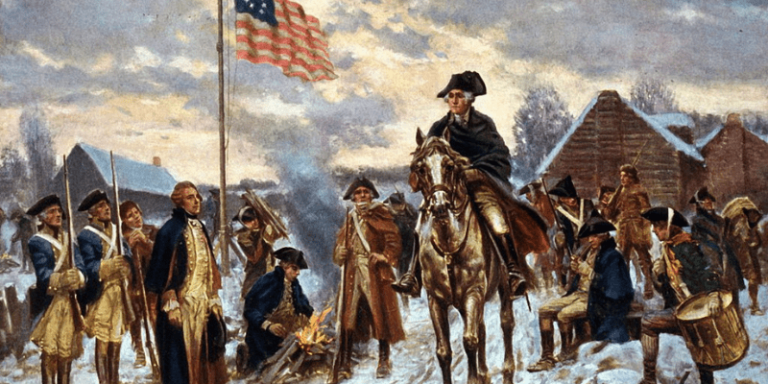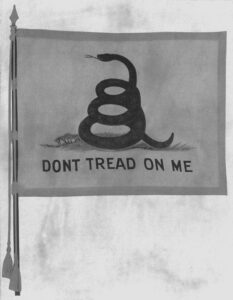The American Revolution: From British Subjects to US Citizens
England’s refusal to grant American colonists fair representation led to war – and a new nation.
By: GenZ Staff | December 5, 2019 | 440 Words

Washington at Valley Forge, Pennsylvania. (Photo by: Photo12/Universal Images Group via Getty Images)
Long before there was a United States of America, explorers from Europe came to America and established colonies. By the 1700s, the area now known as the Eastern United States was controlled by 13 British colonies. For a long time, the 13 colonies had been allowed to rule themselves, even though they were still under the authority of the king in England. But when the British Parliament began passing laws and making new taxes, the colonists protested. Eventually, war broke out, and the American Revolution began.
Legislation Without Representation
Leading up to the American Revolution, the colonists objected to British rule because it didn’t provide them with much representation in England, where the laws were made. For most of the 17th century, the British didn’t have any regulations in place for the colonies. They viewed the colonies as an investment. They had sent people across the ocean, and now it was up to those colonists to either succeed or fail, mostly on their own. The problem came when England began passing new rules and taxes that were meant to take money from the colonies.
While the British government felt the colonies belonged to England, the people who had spent their lives building up those colonies felt they were being exploited. As the British passed more laws and taxes, the colonists protested more. But most of them didn’t want war – they just wanted a say in the laws that governed them.

Illustration of the Gadsden flag. (Photo by Interim Archives/Getty Images)
War and Independence
The situation just got worse as the colonists responded to new laws with new protests and the British responded to each protest by sending more troops to America or passing new laws and taxes.
The first actual battles of the Revolutionary War were at Lexington and Concord in 1775 – and the colonists hadn’t even declared independence yet! On July 5, 1775, the representatives from each colony passed the Olive Branch Petition, which was the last effort to reconcile with England. But before the petition reached King George III, the king declared the colonists rebels and asked other countries for help in defeating them.
On July 4, 1776, the 13 colonies – now without any hope of fixing things with England – officially declared independence and became states rather than colonies. This allowed them to form alliances with other countries, like Spain and France. The foreign assistance helped the colonists fight off the British and, in 1782, Britain conceded American independence. Then began the long process of discussing peace, which ended in the Treaty of Paris of 1783 and a free United States of America.
















